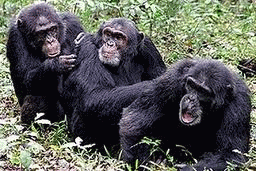This is the first of two articles exploring the age-old Human Nature debate and the question of whether human beings are capable of achieving true participatory and economic democracy.
The failure of the world's great economic powers to solve the global debt crisis, coupled with growing political instability in the Arab world and Latin America's leftward turn, produce daily evidence that global capitalism is on its last legs. Growing global instability is producing intense debate among everyone to the left of Joe Lieberman over the nature of the political/economic system that will likely replace capitalism. Those on the far left see the demise of capitalism as a golden opportunity to end class society and institute a true socialist economy and self-governing democracy. More moderate "liberals," on the other hand, agree with Zbigniew Brzezinski, former national security adviser and author of The Grand Chessboard, that western democracy needs to be more totalitarian. Brzezinski argues that existing democratic processes tend to be too cumbersome to make hard decisions about dwindling energy, water, food and other essential resources.
Liberals base their views, in part, on the old argument that socialism and participatory democracy are impossible owing to innate flaws of human nature. They insist that a ruling, privileged class is essential for survival of civilization owing to innate flaws of human nature that make "socialism" and other more democratic forms of social/political organization impossible.
Animals Behave Better than People
The debate over man's "bestial" nature is centuries old, and draws from traditional religious beliefs that man's higher intellect makes him more similar to God (according to Genesis, we are created in His image) than to other animals. Marx and Engels themselves confront the controversy head-on in the Communist Manifesto and the Origin of the Family, Private Property and the State. The Marxist psychiatrist Wilhelm Reich also addresses the issue in his 1933 Mass Psychology of Fascism. It's Reich's view that most contemporary social problems stem from society's tendency to devalue or even condemn the biologic (i.e. animal) underpinnings of all human behavior. As he, and many contemporary researchers point out, there is nothing inherently evil or dangerous about the behavior of animals that live in social groups. In fact, they usually treat each other far better than most human beings do.
Class Bias and the Human Nature Debate
I am always struck by the one-sided examples of flawed human nature offered by conservatives and so-called "centrist" Democrats. They talk a lot about violent crime, drug and alcohol related abuse, domestic violence and child abuse, but almost never about banksters, fraudulent corporate bookkeeping practices or the unscrupulous drug company CEOs who aggressively market dangerous pharmaceuticals. They capitalist classes, who have near absolute control over public education and the mainstream media, argue in favor of preserving class society and privilege, owing to so-called innate character defects that make working people incapable of governing themselves.
Categorizing Alleged "Innate" Flaws of Human Nature
For the sake of discussion, I have broken down these so-called "innate" flaws of human nature into four broad categories: impaired rational decision making, self-centeredness and greed, laziness and aversion to work, innate aggressiveness and violence.
1. Impaired Rational Decision Making: Impulsiveness and emotionality allegedly make human beings (especially those from the poor and disadvantaged classes) innately irrational. Limited capacity for rational decision making, due to emotional instability, ignorance, superstition and/or prejudice makes it impossible for the average person to participate in self-governance. This means wiser, more technologically sophisticated people are needed to make the fundamental decisions necessary to run the basic institutions that govern their lives. This viewpoint isn't limited to the ruling elite. As Wilhelm Reich observes in the Mass Psychology of Fascism, much of the working class, especially those raised in authoritarian families, share this belief. In fact many of them deliberately seek out external authority to set out firm rules for their personal lives.2. Self centeredness and greed: Survival of the fittest dictates that individuals prioritize their own self-interest. Innate competitiveness and greed will always prevent human beings from voluntarily sharing resources unless they derive direct personal gain or some external authority imposes it on them.
3. Laziness and aversion to work: Human beings (especially those from poor and disadvantaged classes) are innately lazy. Socialist economic systems are doomed to collapse. Without strong financial incentives, people would have no motivation to work.
4. Innate aggressiveness and violence: Human beings, especially males from poor and disadvantaged classes, are fundamentally violent and aggressive. Without external restraint from law enforcement, stronger individuals will constantly victimize weaker ones.
(Note: You can view every article as one long page if you sign up as an Advocate Member, or higher).






